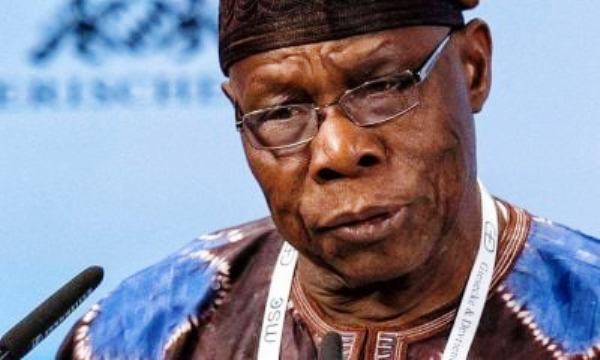Former President Olusegun Obasanjo has called on members of his generation to quit active politics so that generations after them can take over.
He said members of his generation should not still be competing with younger generations for political positions but rather collaborating with them by providing adequate guidance to transform the nation.
Obasanjo spoke on Monday as Chairman of the 2022 Annual Lecture of the Murtala Muhammed Foundation.
The lecture with the theme, ‘Beyond Boko Haram: Addressing insurgency, banditry and kidnapping across Nigeria’ also featured other prominent Nigerians, including Chairman of the Nigeria Governors Forum and Ekiti State Governor, Dr. Kayode Fayemi.
Fayemi, who was the Guest Speaker, had disclosed that he was in Primary School when Mohammed was Head of State.
Reacting, Obasanjo said, “We need to have an intergenerational collaboration. Fayemi said he was in primary school when Murtala and Obasanjo were there. So, if people of the Murtala/Obasanjo era are competing with you as governor, then, something is wrong.
“The Murtala/Obasanjo group should be stepping aside. Whatever experience and knowledge we have, we should be able to give it to you and you should be able to give it to those coming after you, so that whatever you have, you are passing it down to those who are coming behind and not to start competing with you, but to make you have access to what will make Nigeria better.”
He blamed high insecurity in the country on proliferation of arms caused by the Nigerian Civil War, crisis caused by introduction of Sharia Law, unemployment, among others.
Obasanjo said he had been vindicated on his fears about Boko Haram which has now got support from international collaborators.
“The insecurity in the country was caused by the ease of access to weapons after the civil war, and since then, we have been unable to address the issue; it keeps getting worse.
“In 2011 when Boko Haram was just showing its ugly head, I went to Maiduguri to try and find out a little bit more about Boko Haram and to also find out what their objective was, apart from being interested in Sharia. They also complained that their followers had no jobs and stated their efforts to get something legitimate to help their members.
“In the process, the government started chasing them and gunning them down.
“What I feared at that time seems to have been happening. At that time, Boko Haram had not many external connections; the ones they had were Nigerians who had resources abroad, who were helping them. My fear then was whether we would be able to keep them away from Al-Qaeda and other international terrorist organisations.
“We seem not to have been able to do that which has made the situation worse,” the former president said.
He advised that more children should be taken off the streets and enrolled in schools, noting that out-of-school children were more likely to be recruited by terror groups.
“The Nigerian population today is about 215 million and 15 million children are not in school; it doesn’t matter how we deal with insecurity, either by stick or carrot approach. Those children are the potential Boko Haram 10 years from now.
“If we don’t do anything about those children, we are already nurturing the Boko Haram of tomorrow. We need to look back and reinvent. When you look at some of the things we are doing, then you wonder why we are not succeeding. This is because we are doing the same thing all the time.
“Things that we did the last time that didn’t pay us are the same we are repeating. The idea of treating symptoms rather than the disease will not get us anywhere.
“The disease of Boko Haram and banditry are those things that people expect; they want a good life; they want to get a job; they want education; and they must be given for as long as they are denied these, they will be right to make a demand on society, which it must give to them willingly or unwillingly.”

